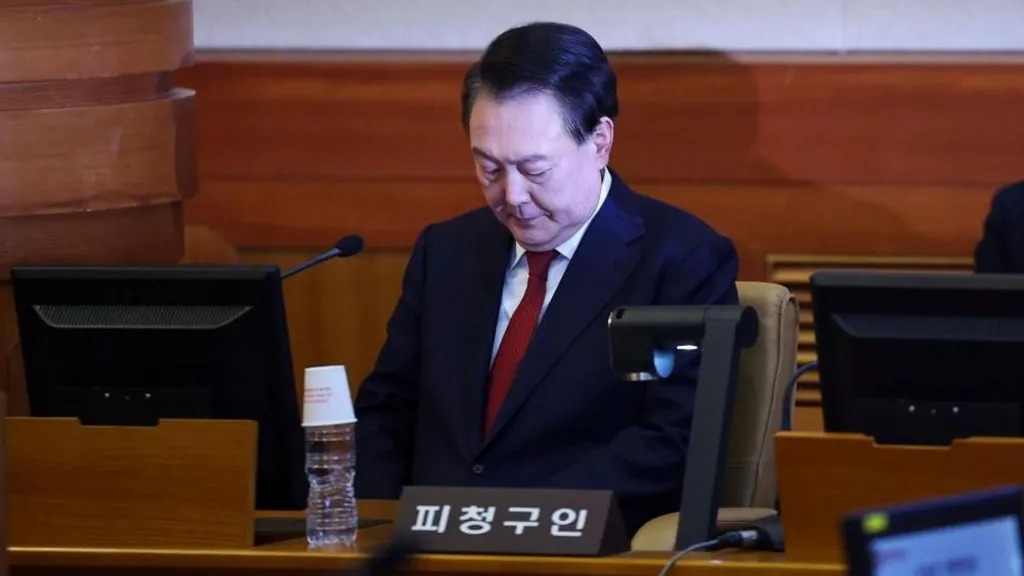
South Korea President Yoon Suk Yeol Denies Ordering Arrest of Lawmakers
South Korea’s suspended president Yoon Suk Yeol has denied allegations of ordering the arrest of lawmakers during his martial law declaration. The claim was addressed during his first appearance at the Constitutional Court as part of his impeachment trial on Tuesday.
Yoon, who has been detained since last week, is also under a separate criminal investigation for allegedly leading an insurrection. Parliament voted to impeach him last month, citing his controversial martial law attempt on 3 December as a political move rather than a response to external threats.
Security outside the Constitutional Court was tight, with anti-riot barricades and police walls separating hundreds of Yoon’s supporters from the courthouse. The political crisis has left South Korea in turmoil, with protests and economic instability gripping the nation.
Key Highlights from Yoon Suk Yeol’s Impeachment Trial
Martial Law Controversy
The impeachment trial centers around Yoon’s controversial decision to declare martial law, which he initially justified by citing threats from North Korea and “anti-state forces.” However, prosecutors argue that the move was aimed at suppressing domestic opposition.
When questioned during the hearing, Yoon denied allegations of instructing military commanders to forcibly remove lawmakers from parliament to prevent them from overturning his declaration.
“I am a person who has lived with a firm belief in liberal democracy,” Yoon said during his opening remarks, adding that his martial law declaration was “a formality that was not meant to be executed.”
Prosecution’s Counterarguments
Prosecutors selected by South Korea’s parliament described Yoon’s statements as “contradictory and irrational,” accusing him of evading responsibility.
“If they continue to evade responsibility as they did today, it will only work against them in the impeachment trial,” the prosecutors told reporters outside the courtroom.
Protests and Public Reactions
Supporters Rally Behind Yoon
Hundreds of Yoon’s supporters gathered near the Constitutional Court, chanting for his release and immediate reinstatement.
Waving Korean and US flags, some supporters wore MAGA-style hats embossed with the slogan “Make Korea Free Again,” mirroring Donald Trump’s campaign slogan.
“This is a conflict between people who pursue communism and people who pursue democracy,” said Wongeun Seong, a businessman who joined the protest.
Opposition Views
Critics argue that Yoon’s martial law declaration was a dangerous overreach, with advocacy groups accusing him of undermining democracy.
What’s Next in the Impeachment Process?
- Key Testimony Ahead: Former defense minister Kim Yong-hyun, who reportedly suggested martial law to Yoon, is scheduled to testify on Thursday.
- Impeachment Decision: The eight-member Constitutional Court will decide Yoon’s fate. A two-thirds majority (six votes) is required to permanently remove him from office.
If the impeachment is upheld, South Korea will need to hold a presidential election within 60 days.
Impact on South Korea
The political crisis has deeply affected the country:
- Economic Impact: The South Korean won has weakened, and global credit rating agencies have warned of declining consumer confidence.
- Public Unrest: Protests, both for and against Yoon, have continued despite the cold winter.
External Link:
Learn more about the trial on BBC News.
Internal Link:
Stay updated on global politics at Kenkou Land’s political section.





